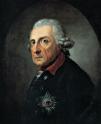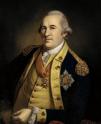Frederick the Great, Baron Von Steuben, and the Value of Practice, Practice, Practice
.
During a recent trip to London, I took along John McAuley Palmer’s Washington – Lincoln – Wilson Three War Statesmen. Previously I reviewed Palmer’s excellent and informative America in Arms, so I’ve been looking forward to this follow-up. While I’m not finished with Washington (on about page 90), this one is a much tougher read than the first, but I’m going to press on as I can make the time among competing work and books.
What I wanted to share with you was an excerpt from Palmer’s remarks on Baron Von Steuben’s Prussian military background.
.
Von Steuben, in many respects was Washington’s ace at organizing, equipping, and training the army—a job for which Von Steuben was eminently qualified. His was the latest training in the methods of Frederick the Great and his vaunted what was to become his Prussian General Staff. (many thanks to Seydlitz for correcting my error)
For training, Frederick used what he called the “applicatory method.” This sounds a lot like Fred Leland’s cutting edge law enforcement training and Don Vandergriff’s work with the US Army. Here are a few quotes:
“He found that military success depends, not upon profound theoretical knowledge, but upon sound judgement and quick resolute decision under stress. Directing a successful attack is therefore not the same thing as writing an essay about it. It is a question of grasping a situation, making a practical decision, and issuing intelligible orders to the several parts of a military command. It is a question of not merely knowing but of doing. (emphasis, Palmer, pages 42-43)
“This led Frederick to form the habit of giving himself tactical problems in his daily walks and rides. Carlyle gives us the following interesting glimpse of the great king after he had become a distinguished and successful general:
For Friedrich is always looking out, were it even form the window of his carriage, and putting military problems to himself in all manner of scenery. What would a man do, in that kind of ground, if attacking, if attacked? With that hill, that brook, that bit of bog? And advises every officer to be continually doing the like. That is the value of picturesque or other scenery to Friedrich. (emphasis mine)
“From making this a method of self-culture to making it a means of instructing others is but a step…It is the continual test of judgement, of decision, and of facility in issuing effective orders.” (Palmer, page 43)
Frederick also used this training method as a “tactical measuring rod” to help determine the competency of his leadership.
Page 1 of 2 | Next page

